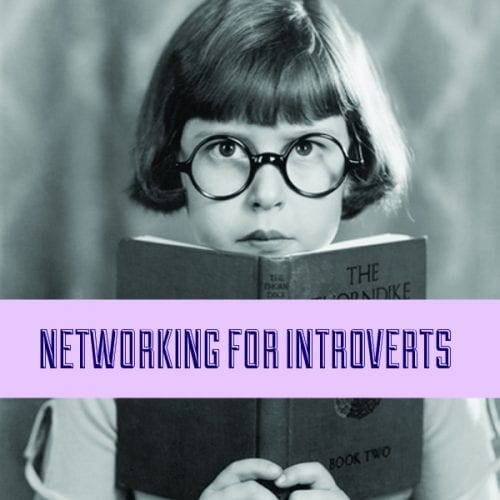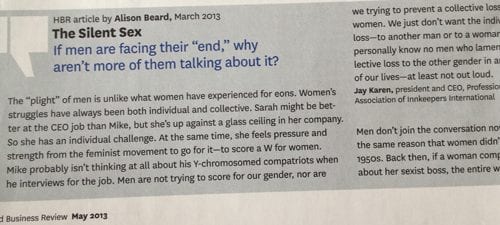Have you noticed that it’s really hard to buy a rice cooker when hundreds of people on Amazon have very strong opinions about which rice cooker is the best?
In The Paradox of Choice, Barry Schwartz writes about how the ever-expanding panoply of choices (consumer and otherwise) simply paralyzes people: give shoppers three types of jam to choose from, and they’ll pick one; give them eighty types of jam and they’ll get overwhelmed and decide they didn’t need any jam after all.
If I had gone to a suburban KMart in a neglected strip mall and found a single rice cooker, I would have bought it, and it would almost certainly have cooked rice. Instead, I spent two hours reading all of the rice cooker reviews on Amazon: this one exploded in someone’s kitchen! This one makes enough rice for a family of four, but this one has a steaming basket that accommodates broccolini! Someone always bought a certain brand of rice cooker and then couldn’t get that brand anymore and bought another brand and that rice cooker didn’t last as long! (How old do you have to be to have used 4+ rice cookers to their natural ends?)
In the end, I bought a rice cooker that hadn’t exploded on anyone and that had good reviews, albeit not very many (oh no, the great unknown!) It arrived. It was 300% larger than I had expected and didn’t really fit in the cabinet I had intended to store it in. That was two hours of my life I’ll never get back.
I’ve been thinking a lot about decisionmaking. Specifically, one of the reasons I’m now here writing business and life advice is that I’ve simply made a lot of decisions, some of them truly terrible (see Bullish: Three Career F*ckups I Made So You Don’t Have To).
In order to learn from mistakes, though, you have to be willing to make them, and a lot of them. Youth is an excellent time to be risk tolerant: if you start a business and lose everything, what have you really lost? You’ll be 25 and broke. Get up and do it again. In many ways, the delay and worry caused by putting off a decision are worse than the consequences of a bad decision; sometimes simply being decisive and doing something, anything at all, is preferable to inertia.
Here are some principles for better (and less painful) decisionmaking.
Identify the values you are attempting to serve.
This is going to sound super-cheesy, but I learned to become a much clearer thinker on the high school Lincoln-Douglas debate team (I also wrote in Social Class in the Office about other lessons learned from my high school debate coach, such as when to shake hands, and why to be cordial towards enemies).
In “value debate,” you not only debate the proposition at hand (“Should industry in the developing world be regulated in order to protect the environment?”), but you are also required to put forth a separate line of argumentation about what the primary “value” is by which we should adjudicate the debate. That is, what is most important in making global policy decisions, or in life? If you say “individual well-being,” then we can argue over whether the well-being of everyone who gets to live in a cleaner world outweighs the economic well-being of the people in the developing nation, and if you say “justice,” then we can argue whether justice is best served by giving everyone the right to a cleaner environment or by giving developing nations the same chance to build their industries that developed nations once got. But without knowing what is most valued, the argument goes nowhere; most decisions have numerous valid considerations on both sides, and we need a way to weigh those considerations.
Should you go back to graduate school? Sure, school is in many ways more relaxing than trying to make it in the working world, and you’ll find the material very intellectually stimulating. But you probably won’t get a better job as a result, and then you’ll have more debt and thus even more working-world stress once you’re done. But you’ll also get to spend the rest of your life being a person with a masters degree — which is a certain pleasure in itself, being the sort of thing no one can ever take away from you — and getting to say things like, “I was educated at Bowdoin and Duke,” which always sounds cool. For some people, the pleasure of feeling like a person who is very well-educated is rather like the pleasure of walking around feeling pretty all the time, and people spend hours a day and huge portions of their income on that pursuit with no expectation of making a profit, so who says you can’t do the same with your education? On the other hand, waking up every day owing someone eighty grand can also put a damper on your happiness.
In Bullish: Maybe You’re Not Actually a Lazy Procrastinator, I talked about putting your goals in line with your values. If you’re having trouble making a big decision, put the decision out of your mind as much as possible, and make a list of your values. Be honest: you don’t have to share them, and they probably won’t look noble, because we are really just primates who shave. Mine turned out to be:
1. Living in a state of cool, collected, highly-competent confidence
2. Good food and alcohol that I paid for myself
3. Solitude
4. Receiving respect from those I respect as well as credit for my work
5. Helping people who want to learn
6. Love and friends
7. Travel
8. Ultimately pursuing philanthropic projects once I gain more money and power and can make awesome things happen in a will-to-power type way.
And no, I’m not apologizing for putting “alcohol” above “helping” and “love.”
If you can list your values, decisions become much easier: will a graduate degree help you achieve your top-listed values more than student loan debt will keep you from them? Done. Any other nagging considerations are probably, upon reflection, based on other people’s values.
For things that don’t matter, automate and satisfice.
The word “satisfice” — a combination of “satisfy” and “suffice” — was coined by Nobel laureate Herbert Simon to describe the process of determining what would be an acceptable outcome, and then taking the first option that meets the requirements for adequacy. It is the perfect way to buy a rice cooker: Does this cook rice? It does? I’ll take it, thank you.
The opposite of satisficing is optimizing — rationally considering all the options to find the very best one. Optimizing is fucking exhausting, and just not worth it for a great many types of decisions. In fact, optimizing is often specifically not worth it once you factor in the time it takes to optimize.
In many cases, optimizing isn’t even possible, so don’t stress about it. We are rarely able to accurately calculate the probabilities of success from various paths we might take; even if we are good at math, we cannot predict the future. Furthermore, Daniel Gilbert writes in Stumbling on Happiness (also cited in Bullish Life: Breaking Free from Terrible Situations) that we, as humans, are extremely bad at anticipating what our future selves will like, which rather dooms many of our optimization efforts.
For fairly unimportant decisions, either satisfice — go on vacation to the first country that seems interesting and to which Expedia offers you a good flight and hotel deal — or automate. That is, decide in advance that you always buy generic versions of product whose ugly containers you don’t have to look at too often. Decide in advance that you simply don’t eat grocery store cookies, because they have a lot of fat, sugar, and calories, but aren’t tasty enough to justify it (the fresh-baked ones deliver 500% the pleasure for the same number of calories!) Make rules, follow them, and don’t obsess about them.
Automating and satisficing are also good ways to avoid buyer’s remorse: If you go on vacation to the first interesting country you get a good deal to, then if it rains all over the Acropolis while you’re there, you won’t constantly be kicking yourself for not going to Morocco instead of Greece. I mean, sometimes it rains. It’s nobody’s fault. And if it turns out that, OMG, the name-brand beans were actually on sale for less than the price of the generic beans, well, you’ll never notice, which gives you more mojo for making truly important decisions later.
For any decisions you don’t have to justify to a boss, going with your feelings is just fine.
Jonah Lehrer’s How We Decide discusses in great detail the role of emotions in decisionmaking, and how good decisionmaking comes from knowing when to rely on emotions and when to disregard them by realizing that we are falling under the spell of cognitive biases.
In short, though: it is not possible to make a purely rational decision. Brain imaging technology shows that humans are simply not wired that way; emotions are global throughout the brain, and making decisions without them is actually impossible. In fact, people who have brain damage to the part of the brain that controls emotions don’t make better decisions; they can’t make any decisions.
In many cases, your emotions are simply sending you messages from your subconscious, which contains a lifetime of information and which can process and sum up that information faster than you can consciously think. Call this intuition — or even wisdom.
Lehrer’s book opens with an extended discussion of how quarterbacks decide where to throw the ball. I’ll spare you a big blockquote, but suffice it to say that winning quarterbacks make very good decisions under chaotic and violent circumstances, and they make those decisions faster than it is possible to consciously think, and thus they often are completely unable to explain later why they performed so brilliantly; they send the ball wherever feels right. And it works.
Your subconscious is an amazing and unexplored place that doesn’t just concoct dreams in which you have sex with inappropriate authority figures. It also does work far beyond the powers of your conscious mind, and it can also do this while you’re sleeping, even while also concocting dreams in which you have sex with inappropriate authority figures. Pretty good decisions can come out of there.
Whether you’re facing big decisions in your life right now or simply slowed down by many small ones, decisionmaking is a skill that can be improved with a few principles and a little bit of customization to your own values and goals. All things can be learned and improved, and this is most certainly one of them.
originally published on The Gloss









